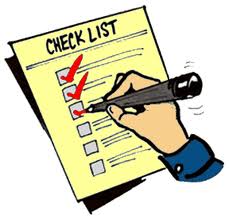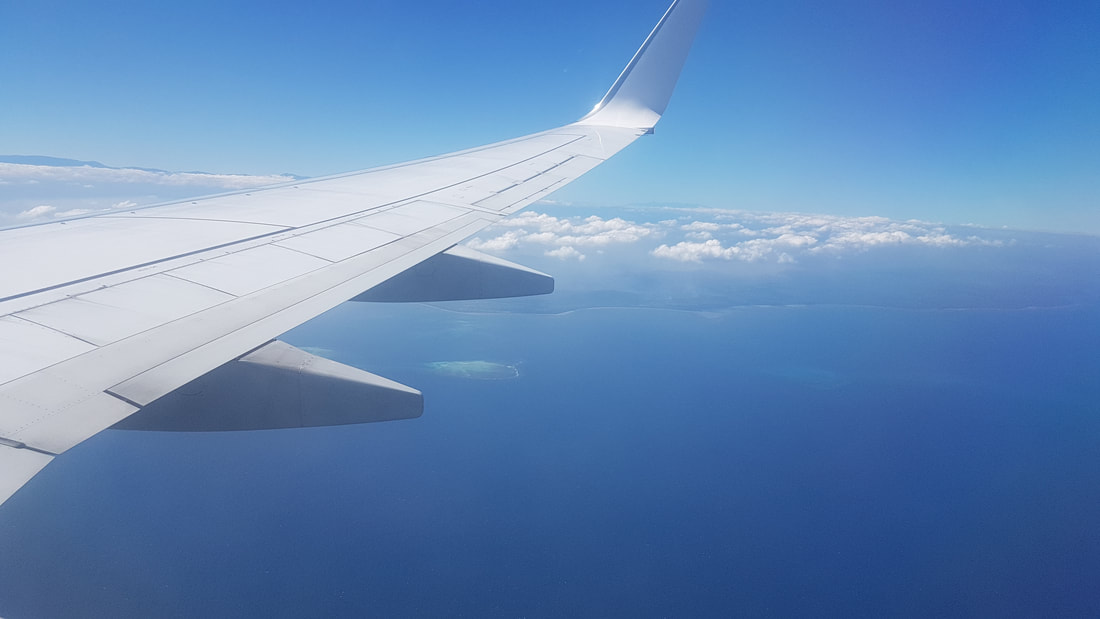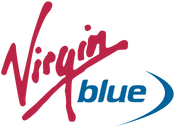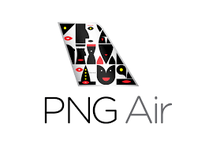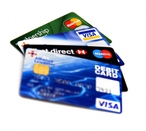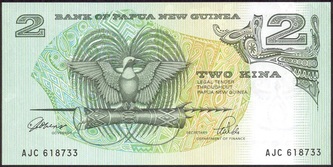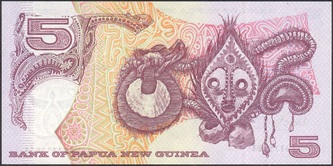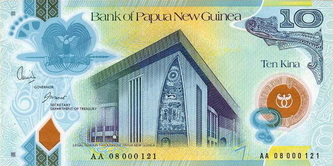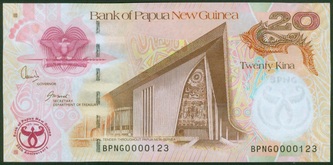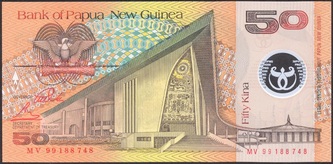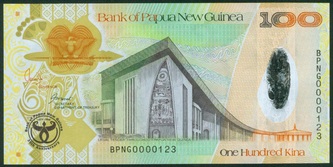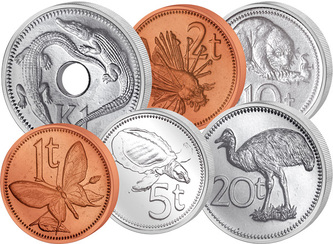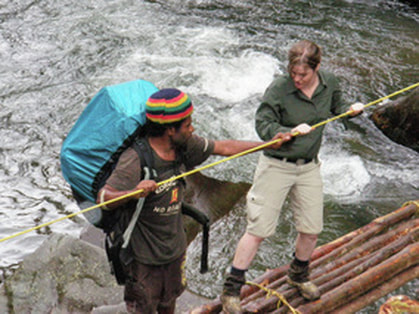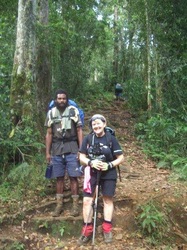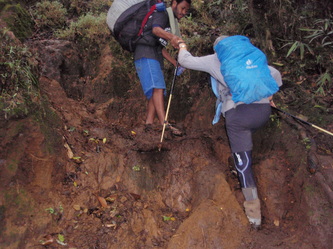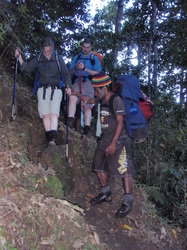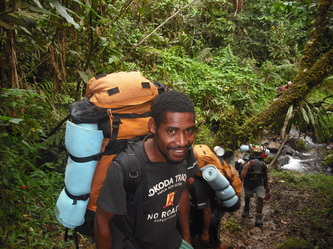Planning Your Expedition
You are embarking on an adventure in a place and amongst people whose lives are very different from your own. Many aspects of life in PNG will seem unusual. Remember that these are often the same aspects that make an area an exotic and attractive destination.
In addition to the personal physical challenges you may face, travel conditions can present unexpected obstacles, such as delays in flights and changeable weather. To prepare for this, “pack” a flexible and relaxed attitude. Bring a spirit of adventure and inquiry, a healthy sense of humour and a willingness to encounter the unexpected, and you will find your trip to PNG the adventure of a lifetime!
Our first tip is to start planning now! Don't leave everything to the last few weeks. Use the planning considerations below to begin your planning. Even if you are a seasoned trekker with many expeditions under your belt, you may still find specific information of interest particular to the Kokoda trekking environment that will help ensure you get the most out of this trip.
Our first tip is to start planning now! Don't leave everything to the last few weeks. Use the planning considerations below to begin your planning. Even if you are a seasoned trekker with many expeditions under your belt, you may still find specific information of interest particular to the Kokoda trekking environment that will help ensure you get the most out of this trip.
Arrows may not center when in edit mode. Once site is published, the arrow will be centered on the tab
When the site is published, this border and note will not show up.
Drag & drop your tab 1 content here
Make a Plan
|
Please ensure that you have contacted the No Roads office to provide them with the following information at least two weeks prior to departure to ensure your expedition is managed effectively:
|
To allow sufficient training time, book a minimum of three months in advance of your trek. Many people train for six months in preparation for what is one of the toughest walks in the world.
Considerations:
- Don't forget to arrange for leave from your workplace well in advance.
- Plan your fitness program to get yourself ready for the trek - even if you are fit, you will need to train for at least three months on hilly terrain.
- Once you have paid a deposit to secure a place on the trek, book your airfares. As soon as this is done, organise appropriate travel insurance (with medivac included).
- Prepare a budget for this holiday (if you haven't already).
- Visit your doctor to discuss key medical considerations.
- Spend time researching the history of the Kokoda Track.
- Learn more about the expedition, the itinerary, daily routine and what you will see.
- Begin your personal gear selection - you may be used to just making do but having the right gear can make all the difference to your comfort and therefore your enjoyment of the trek, so be prepared to spend a little more and try your new gear out before you go.
- Consider hiring a personal guide – personal guides are well-respected professionals, used to the conditions and the terrain, who will not only carry your gear for you but also work hard for your benefit to ensure that you have the best possible experience.
- Ensure you have a valid passport and PNG visa.
Drag & drop your tab 2 content here
Travel Insurance
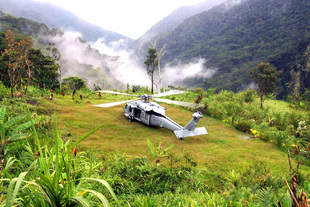
Evacuations by helicopter are very expensive.
Emergency Medical Evacuation Insurance is mandatory for all trekkers.
Medical facilities in PNG are not comparable to those in western countries. Emergency medical evacuation could include returning to your home country for advanced care, hence the need for insurance.
Trip cancellation insurance will reimburse you for any non-recoverable air or land expenses should you have to cancel your trip due to personal or family illness or leave the expedition early due to other reasons. It will also cover any emergency medical evacuation expenses should you become ill during the expedition.
Medical facilities in PNG are not comparable to those in western countries. Emergency medical evacuation could include returning to your home country for advanced care, hence the need for insurance.
Trip cancellation insurance will reimburse you for any non-recoverable air or land expenses should you have to cancel your trip due to personal or family illness or leave the expedition early due to other reasons. It will also cover any emergency medical evacuation expenses should you become ill during the expedition.
Baggage Loss and Accident Insurance
We strongly recommend that you take out baggage loss and accident insurance. You can avail yourself of such policies in most western countries.
Emergency Evacuation by Helicopter or Light Plane
In the event that an aircraft evacuation is required, No Roads Expeditions will undertake to arrange the evacuation on the condition that the expenses will be reimbursed by the passenger before departing the country.
It is essential that you bring to PNG two copies of the pages of your travel insurance policy document that display the following information:
Please note that, unfortunately, our expedition guides cannot take you on the trek if I they do not have a copy of this document prior to departing Port Moresby on trek day one.
It is essential that you bring to PNG two copies of the pages of your travel insurance policy document that display the following information:
- Insurance company’s name
- Your policy number
- Insurance company’s emergency contact phone number.
Please note that, unfortunately, our expedition guides cannot take you on the trek if I they do not have a copy of this document prior to departing Port Moresby on trek day one.
Travel Insurance Policies / Credit Card deals
There are some credit cards on the market that also come with travel insurance as an extra. It is very important that you check the policy documents to ensure it covers aircraft evacuation as explained above.
Please don't assume that aircraft evacuation is covered or that Papua New Guinea is included in the cover.
Please don't assume that aircraft evacuation is covered or that Papua New Guinea is included in the cover.
Travel Insurance
To obtain an insurance quote please get in touch with The No Roads team by phoning (03) 9598 8581 or emailing [email protected]
Note: Accidents caused by the inappropriate consumption of alcohol or drugs may void your travel insurance.
Note: Accidents caused by the inappropriate consumption of alcohol or drugs may void your travel insurance.
Drag & drop your tab 3 content here
Air Travel to PNG
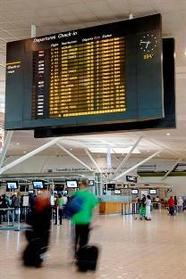
Unless you live in PNG, you will need to book tickets to fly over to Papua New Guinea. Don't leave this until it is too late. Booking early may save you money so shop around and book early.
Sometimes, there is not enough time to catch both a domestic and an international flight on the same day. Our treks need to run to our date and time schedule, so if you miss your flight to Papua New Guinea you will miss your trek, as we are unable to delay trek departures. It is prudent to allow for possible delays in domestic flights. Something to think about!
It is important to arrive in Port Moresby, PNG as early as possible, ideally before 2pm if possible.
Sometimes, there is not enough time to catch both a domestic and an international flight on the same day. Our treks need to run to our date and time schedule, so if you miss your flight to Papua New Guinea you will miss your trek, as we are unable to delay trek departures. It is prudent to allow for possible delays in domestic flights. Something to think about!
It is important to arrive in Port Moresby, PNG as early as possible, ideally before 2pm if possible.
International Flights to PNG
There are a few airlines that service Papua New Guinea from Australia and from other countries. These include:
- PNG Air (formally Airlines PNG) - http://www.pngair.com.pg/
- Virgin Blue / Pacific Blue - http://www.virginblue.com.au/
- Qantas - http://www.qantas.com.au/
- QantasLink - http://www.qantaslink.com.au/
- Air Niugini - http://www.airniugini.com.pg/
Let No Roads book your flight
No Roads Expeditions can now book flights on any airline to any destination in the world. Even if you are not going on one of our Kokoda trips, we can still book your flights, stopovers and connections for your next holiday.
So why not give us a go? You may be very surprised with what we can come up with!
Please get in touch with The No Roads team by phoning (03) 9598 8581 or emailing [email protected]
So why not give us a go? You may be very surprised with what we can come up with!
Please get in touch with The No Roads team by phoning (03) 9598 8581 or emailing [email protected]
Drag & drop your tab 4 content here
International Passport
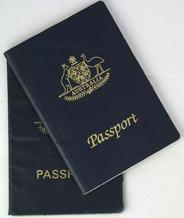
A valid passport is required by all foreigners traveling to PNG with at least 6 months left before expiry. You will need your passport when you fly over to PNG and must also carry it with you along the Kokoda Track just in case you require urgent medical evacuation back to Australia (or another country).
Please bring with you a photocopy of the main information page of your passport (page with your photo) and other details are located. Carry an extra passport photo in case you need to request a new one. This is to be kept with you in case your passport is misplaced. It is a lot easier to have this document with you when dealing with embassy staff in PNG. Keep these additional documents separate from your passport.
The Department of Foreign Affairs and Trade's (DFAT) online passport services has detailed information about renewing or applying for a new passport. Visit their website at: DFAT Passport Website
Please bring with you a photocopy of the main information page of your passport (page with your photo) and other details are located. Carry an extra passport photo in case you need to request a new one. This is to be kept with you in case your passport is misplaced. It is a lot easier to have this document with you when dealing with embassy staff in PNG. Keep these additional documents separate from your passport.
The Department of Foreign Affairs and Trade's (DFAT) online passport services has detailed information about renewing or applying for a new passport. Visit their website at: DFAT Passport Website
Papua New Guinea Tourist Visa
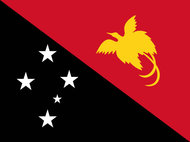
Papua New Guinea National Flag
Australian Passport Holders wishing to visit PNG for tourism purposes are able to obtain a tourist Easy Visitor Permit (Electronic Visa) for their visit.
https://evisa.ica.gov.pg/evisa/account/apply.
This tourist visa will be valid for 30 days only (unless a longer period is selected).
Applicants must have the following to obtain the visa:
As of early February 2020, PNG consulate advised that the Visa on Arrival service has been rescinded so we are no longer recommending it as an option.
https://evisa.ica.gov.pg/evisa/account/apply.
This tourist visa will be valid for 30 days only (unless a longer period is selected).
Applicants must have the following to obtain the visa:
- Australian passport valid for more than 6 months (a copy of the main page, top to bottom)
- Return or onward ticket (a copy of tour e-ticket/itinerary)
- Show evidence of funds (bank statement or evidence of bank account balance)
- A completed copy of the Supplementary Health Form (please click on the blue document name to open a downloadable or printable version of each)
- A completed copy of the Cover Letter (please make sure you enter the dates applicable to your trip)
- A completed copy of the Medical Certificate (this is supposed to be completed by a medical practitioner, however many guests have simply completed the form themselves)
As of early February 2020, PNG consulate advised that the Visa on Arrival service has been rescinded so we are no longer recommending it as an option.
Drag & drop your tab 5 content here
Budget Advice
Establishing a budget for your holiday is as important as any other budgeting. For those people who are new to planning a holiday overseas or trekking and want a little help to get started, the following list is a guide to some of the common expenses for the expedition.
There may of course be additional costs not listed in this guide, expenses beyond our control or specific to a set of personal circumstances. Treat this list as a starting point and build as required.
There may of course be additional costs not listed in this guide, expenses beyond our control or specific to a set of personal circumstances. Treat this list as a starting point and build as required.
- No Roads Expeditions - booking cost (deposit and final payment)
- Personal guide hire (optional)
- International passport (if you don't have one yet)
- Medical consultation
- Medical treatments (anti-malaria, immunisations etc..)
- Airfares (domestic and international flights)
- Insurance (must include 24x7 aero-medical evacuation from PNG)
- Camping equipment (sleeping bag, sleeping mat, mosquito net, towel, headlamp, toiletries, etc..)
- Trekking equipment (trek poles, backpack, hat, sunglasses, waterproof bags, etc..)
- Clothing (quick dry clothes, poncho, thermals, etc.)
- Footwear (trekking shoes, gaiters, socks, camp sandals, etc..)
- Personal use First Aid kit
- Additional snack food (optional)
- 2 x dinners in Port Moresby (~$60 AU)
- Hotel drinks (bottled water and alcoholic/bottled beverages)
- Hotel expenses such as laundry, boot cleaning, phone calls, snacks.
- Money exchange fee (when converting currency)
- Souvenirs and handicrafts.
- Small snacks along the Track $100 in small kina notes 1K and 2K
- Tipping the PNG guide team members - optional but encouraged (~$35)
- Waterproof camera, extra batteries and memory cards (optional)
- Fitness training expenses i.e. personal trainer, gym membership (optional)
- Meal, drinks, parking and transport expenses whilst travelling back and forth between home and PNG.
Money Matters
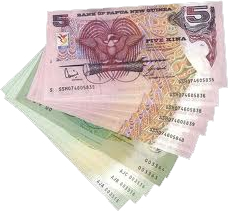
The currency of Papua New Guinea (PNG) is kina (keena) and toea (toya) with 100 toea equal to one kina. The kina was introduced on the 19th of April 1975. The kina replaced the Australian dollar and the toea replaced the Australian cent.
The kina was so named because in Tok Pisin (neo-Melanesian) and in the Kuanua language it referred to the valuable pearl shell used widely in the highlands as traditional money. Toea, is a Motu word, meaning valuable arm-shell and has had a wide traditional use in coastal Papua for trading and brideprice payments.
During the colonial period and before the introduction of the kina and toea, the people of PNG used German marks and pfennings, Japanese yen, Australian pounds, shillings and pence and most recently up until the 19th of April 1975 Australian dollars and cents.
Illustrated at the bottom of this page are the PNG notes and coins in daily use, although the one and two toea coins have been phased out and are increasingly hard to find, as most have been returned to the bank and are not legal tender.
The kina was so named because in Tok Pisin (neo-Melanesian) and in the Kuanua language it referred to the valuable pearl shell used widely in the highlands as traditional money. Toea, is a Motu word, meaning valuable arm-shell and has had a wide traditional use in coastal Papua for trading and brideprice payments.
During the colonial period and before the introduction of the kina and toea, the people of PNG used German marks and pfennings, Japanese yen, Australian pounds, shillings and pence and most recently up until the 19th of April 1975 Australian dollars and cents.
Illustrated at the bottom of this page are the PNG notes and coins in daily use, although the one and two toea coins have been phased out and are increasingly hard to find, as most have been returned to the bank and are not legal tender.
Australian and PNG Currency Conversion Rates
In Australia, most major cities have bank outlets that can arrange for the exchange of PNG currency. The Brisbane International Airport terminal has several money exchange companies (e.g. Travelex) who offer commercial exchange rates and usually have the smaller banknotes required on the Kokoda Track. Get in early before they run out of smaller banknotes.
The exchange rate obviously changes with the markets but typically hovers around the 1 AUD to (1.8 to 2.5) kina. i.e. $1 = 2K roughly.
The exchange rate obviously changes with the markets but typically hovers around the 1 AUD to (1.8 to 2.5) kina. i.e. $1 = 2K roughly.
Access to Cash in PNG
There is an ATM at the Port Moresby International Airport that usually has reasonable exchange rates. The hotel has an ATM and can change Australian currency however the exchange rate is not always good and sometimes they may not have the smaller denominations needed along the track.
Note: the Hotel ATM device is not always working, so please have some cash with you.
We do advise trekkers, for their own safety, not to venture out of the hotel compound which limits access to any other money exchange facilities.
Note: the Hotel ATM device is not always working, so please have some cash with you.
We do advise trekkers, for their own safety, not to venture out of the hotel compound which limits access to any other money exchange facilities.
Money for Port MoresbyYou will need to pay for any expenses incurred from your hotel room (phone calls, mini bar etc..), all meals (except a basic continental breakfast) and drinks, snacks and memorabilia. As a rough guide, the prices of meals and drinks are similar to that in Australia.
If you arrive on day one after lunch you will need money for drinks, snacks, dinner, (breakfast paid for by room booking). Then on your last day of your trek, you will need money for drinks, snacks, dinner. On your departure day (assuming you are not staying longer for other activities), the breakfast is included in the room booking again. Please also read our page on tips for the local porter team. |
Money for the Kokoda TrackWe suggest that approximately 150 to 200 kina should be taken with you on the trek to pay for fruit, soft drink and visiting local sites.
This money is in addition to the money for your time in Port Moresby both before, and after the trekking component. If possible, obtain kina in banknotes in Australia through your bank or money exchange prior to departing for PNG.
Small denominations, 2, 5 and 10 kina notes are suggested as change is often difficult to obtain. |
Credit Cards
Kina Notes and Toea Coins
Examples of the Papua New Guinea currency.
Drag & drop your tab 6 content here
Personal Guide
|
All trekkers will be supported by a guide team that will carry all our combined expedition equipment such as tents, cooking equipment and supplies for our meals. These general guides will also assist you if they are nearby and help you over log bridges, up hills and over rocks.
If you have additional items (heavy camera equipment, etc.) that you do not wish to carry or you wish to only carry a small day pack we can arrange a 'personal guide'. A personal guide cannot be shared between two people and is hired in addition to the general guide team. |
The personal guide duties are focused around the portage of your gear. Your pack will be carried each day by your personal guide who will pick it up from your tent in the morning and drop it off in the evening. During the day your personal guide will typically walk near you to offer assistance over rocks, logs or tricky sections of the Track just like the general guides. Most people become good friends with their personal guide.
Hiring a personal guide should not been seen as a weakness or any less of an achievement. People hire personal guides for a variety of reasons, including supporting the local economy. If you are not an experienced trekker you would be well advised to consider engaging the services of a personal guide.
Hiring a personal guide should not been seen as a weakness or any less of an achievement. People hire personal guides for a variety of reasons, including supporting the local economy. If you are not an experienced trekker you would be well advised to consider engaging the services of a personal guide.
Testimonials - Personal Guides
These are just some of the statements made by trekkers who hired a personal guide (previously known as porter):
- My personal porter was just amazing, always there when I needed help and such a lovely person.
- I couldn't have done the trek without my personal porter. No matter where I was he just appeared and was ready to help when needed.
- I am glad I didn't have to carry that pack, it was hard enough walking the track let alone carry a heavy backpack!
- My porter Dixon gave exceptional service. Nothing was too much trouble for him.
- I developed a close bond with my personal porter. I learn't a lot about his family, his culture and told him about mine.
- Every morning I would wake up and David would be ready to take my pack and when I came into camp at night my pack was sitting outside my tent waiting for me. David was just awesome and made my trek that much more enjoyable.
- The care and attention shown by my personal porter, Walter, contributed greatly to my enjoyment of the trek.
Cost and Booking your Personal Guide
The services of a personal guide will require advance notice of at least one week as it takes time to get the guide organised.
Personal guide fees are AUD $720 (updated for 2019).
Contact our office to arrange the personal guide.
Personal guide fees are AUD $720 (updated for 2019).
Contact our office to arrange the personal guide.
Personal Guide and your Backpack
You will need to supply the guide with your own backpack (or hire one from No Roads) and the pack should be a bushwalking type, not a soft youth hostel traveller type and include a purpose built waterproof pack cover. Please keep in mind that a small space approximately the size of two loaves of bread needs to be kept free in your bag for the guides personal effects. Please do not pack your bag to full capacity.
A personal guide is only allowed to carry a maximum weight of 20.0 kg (25 kg is an internationally recognised weight limit). Please keep in mind the excess luggage charge from Port Moresby to Kokoda can be applied and would kick in after 12kg. Your backpack should not be at all full and not over 12 kg in weight.
More information about backpacks and daypacks can be found in our Gear Selection section.
We must emphasise that the weight of your large pack, whether carried by you or a personal guide should not exceed 12 kg fully loaded (without water). If it weighs more then you are probably carrying too much. Remember that you do not have to carry a tent, food or cooking equipment!
Your expedition guide will work with you before your expedition to answer any questions about packing your backpack. On the expedition upon arrival at Port Moresby, the Expedition Guide for Australian led expeditions will visit each person to weigh their backpack and discuss items you have brought that may not be needed. Carrying too much equipment is unnecessary and will impact your enjoyment of your expedition.
A personal guide is only allowed to carry a maximum weight of 20.0 kg (25 kg is an internationally recognised weight limit). Please keep in mind the excess luggage charge from Port Moresby to Kokoda can be applied and would kick in after 12kg. Your backpack should not be at all full and not over 12 kg in weight.
More information about backpacks and daypacks can be found in our Gear Selection section.
We must emphasise that the weight of your large pack, whether carried by you or a personal guide should not exceed 12 kg fully loaded (without water). If it weighs more then you are probably carrying too much. Remember that you do not have to carry a tent, food or cooking equipment!
Your expedition guide will work with you before your expedition to answer any questions about packing your backpack. On the expedition upon arrival at Port Moresby, the Expedition Guide for Australian led expeditions will visit each person to weigh their backpack and discuss items you have brought that may not be needed. Carrying too much equipment is unnecessary and will impact your enjoyment of your expedition.
Drag & drop content here
